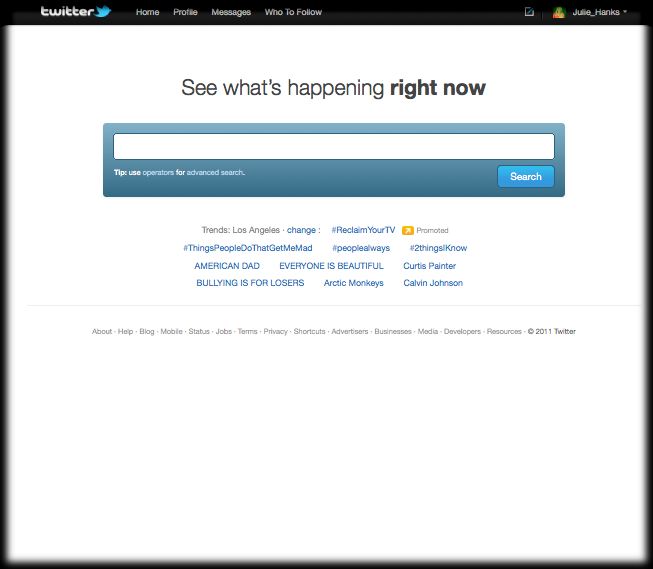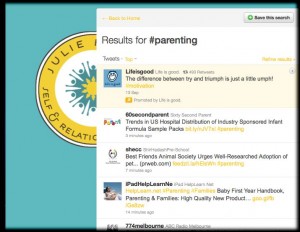 Thanks to technology, there are many free ways to effectively market your private therapy practice. Since these free strategies do take time to implement, I suggest focusing on the ones that sound interesting, fun, fulfilling, and a little challenging so you get something back personally from your time investment.
It can take some time until you actually see the benefits of your marketing in terms of clients coming to your practice. Part of effective marketing is simply raising awareness of your practice and your specialties, which will bring in clients over time.
Thanks to technology, there are many free ways to effectively market your private therapy practice. Since these free strategies do take time to implement, I suggest focusing on the ones that sound interesting, fun, fulfilling, and a little challenging so you get something back personally from your time investment.
It can take some time until you actually see the benefits of your marketing in terms of clients coming to your practice. Part of effective marketing is simply raising awareness of your practice and your specialties, which will bring in clients over time.
After nearly 10 years in private practice, I've found that the most effective strategies for building your practice use what we already know as therapists about building relationships: building rapport, using your authentic self, starting where the "client" is, to name a few, and translating those skills into a new formats that reaches larger audiences.
Here are 5 ways to draw clients to your therapy practice:
Once you've identified who you'd like to see in your private practice, ask yourself, "Where are my ideal clients gathering?" or "Where are groups who work with my ideal clients already gathering?" If your ideal clients are families with a young children with behavior problems, then you may want to focus on speaking to groups of parents or teachers in the schools, for example. Or if you're wanting to focus on working with couples in crisis, then speaking to clergy who regularly meet with distressed couples, or speaking to local religious groups on marriage issues might be something to consider.
2) Blog on your niche
If you have a blog on your website, write weekly articles that speak to your ideals clients. Blog posts are generally 300-500 words, so keep it simple. Blogging once a week is enough to keep it fresh. If you don't have a website, or don't have a blog on your website, I suggest that you look into it. Blogs allow tagging and categories which make it search engine friendly to people who are searching for the information you're offering. Here's an example of blog integrated into a therapist site from my own private practice.
3) Target local social media
Social media is global but your practice is local. Talk with other local businesses and therapists on Twitter and Facebook by using the search boxes to find other pages in your city. For example, if your specialty is working with adults living with chronic pain or illness you may want to follow on Twitter or "like" the Facebook pages of local hospitals, newspapers, rehabilitation centers, chiropractors, and other related businesses and services. The goal of social media is to communicate and interact, not just to inform, so share other local resources on your social media pages. Tag them on Facebook posts or mention them on Twitter status updates. Reciprocity is the key to effectively using social media to build your therapy practice.
4) Interview on local radio
Did you know that radio stations provide a certain number of public service hours each week? Producers are often looking for helpful topics and interesting people to interview that will benefit their listeners. Call or email the top local radio stations in your area, ask for the producer of their public service show, and offer a couple of topics that are related to your basic message.
5) Write for local newspaper or magazine articles
Which magazines or newspapers are your potential clients reading on a regular basis? Do some research on the demographic of the periodical and contact the editor to offer your writing services. Always lead with information on how your article/column/expertise will serve their readers, not how you hope to get hundreds of clients by writing for them. Since most news outlets and local magazines have websites, offering to blog for their site is a great idea, too. Fresh content is a valuable asset to websites so pitch with passion your area of expertise as a blog.
I'd love to hear back from you on how you implement any of these free marketing ideas. Please comment below and feel free to post links of your blog, news interviews, articles, etc. that might spring from reading this post.
 photo credit: orensbruli (Esteban Martinena)
photo credit: orensbruli (Esteban Martinena)
 Do you have a Twitter account for your practice but you're not sure how to get more followers? Do you feel like your tweeting into thin air and no one is "listening"?
Here are a few tricks I've learned that have help me grow my Twitter following and promote your private mental health practice online and build your professional identity.
Do you have a Twitter account for your practice but you're not sure how to get more followers? Do you feel like your tweeting into thin air and no one is "listening"?
Here are a few tricks I've learned that have help me grow my Twitter following and promote your private mental health practice online and build your professional identity.

 Ok, private practice therapists, you can't ignore the mobile marketing revolution any longer. I predict that private practitioners who don't embrace mobile technology will have a difficulty building and maintaining a thriving in the coming years.
Look at these statistics about the astronomical growth of mobile usage predicted over the next few years.
Ok, private practice therapists, you can't ignore the mobile marketing revolution any longer. I predict that private practitioners who don't embrace mobile technology will have a difficulty building and maintaining a thriving in the coming years.
Look at these statistics about the astronomical growth of mobile usage predicted over the next few years. What is Twitter?
What is Twitter?




As healers, we genuinely like to do our work. Guiding clients through the therapy process and seeing them make progress is why we do what we do. But if you're in private practice, you know there's a lot going on in the back end and that it's crucial to run an efficient and organized business.